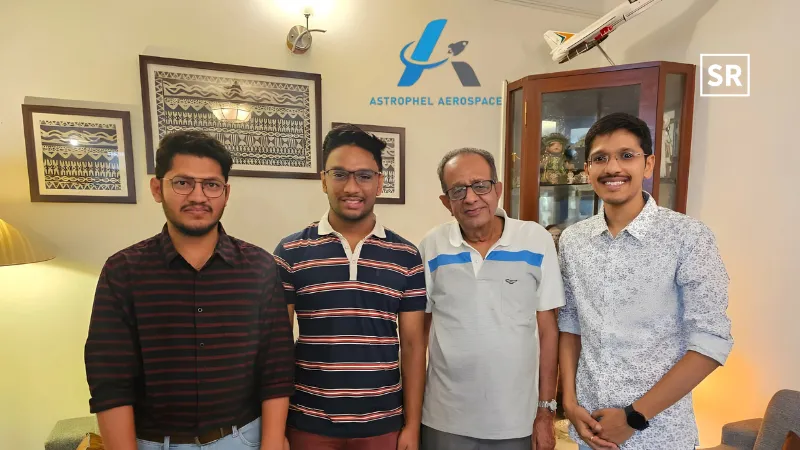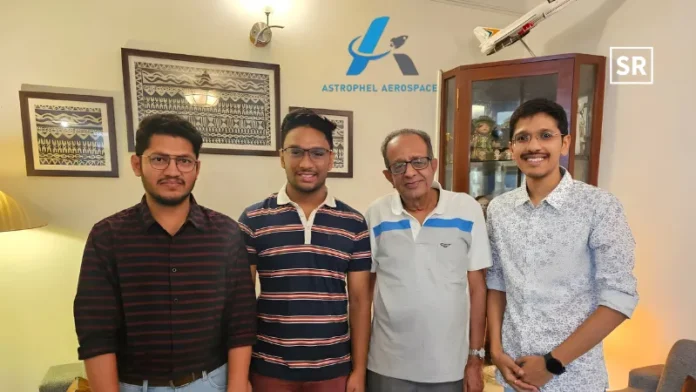
Space tech startup Astrophel Aerospace has raised INR 6.84 crore (about $800,000) in a pre-seed funding round from several angel investors and venture capital firms.
The company will use the funds to build a prototype of its reusable semi-cryogenic launch vehicle and to grow its in-house research and development team, which is working on advanced missile-grade guidance and propulsion systems.
“India’s private space sector is at an inflection point,” said Suyash Bafna, Co-founder of Astrophel. “We’re building reusable systems and precision components aimed at lowering costs and improving access to space.” In addition to propulsion systems, Astrophel is working with a publicly listed Indian manufacturer to jointly produce cryogenic valves, which have applications in both civilian and defence aerospace sectors.
“Reusable rockets and advanced propulsion systems remain among the most demanding engineering challenges in the sector,” said Immanuel Louis, Co-founder. This funding enables us to stay focused on execution while pushing forward with R&D. With its first suborbital launch approaching, Astrophel is positioning itself as a next-generation launch infrastructure company designed to support India’s rising ambitions in outer space.”
Astrophel Aerospace was founded in 2022 by Suyash Bafna. The company is working on building low-cost, reusable launch vehicles specially made for sending small satellites into space.
It follows a vertically integrated model, which means it designs, builds, and tests its propulsion systems inside the company instead of relying on outside suppliers.
Astrophel’s Astra C1 series rockets use semi-cryogenic engines that the company designs and builds in-house. These engines are made using a combination of 3D printing and modular assembly methods.
Astrophel is one of the few private Indian companies to successfully test-fire a semi-cryogenic engine. They did this using only ₹6 lakh of their own money, without any outside funding before this round.
Now, the company plans to build a working, reusable prototype rocket within the next 2 to 3 years.
Astrophel’s main engine, the Potentia C1U, is made using a modular design and manufacturing process inspired by the car industry. The company has also signed an agreement with ISRO to work together on developing and testing their technology.
Read more- Zango AI Secures $4.8 Million Seed Funding Led by Nexus Venture Partners





